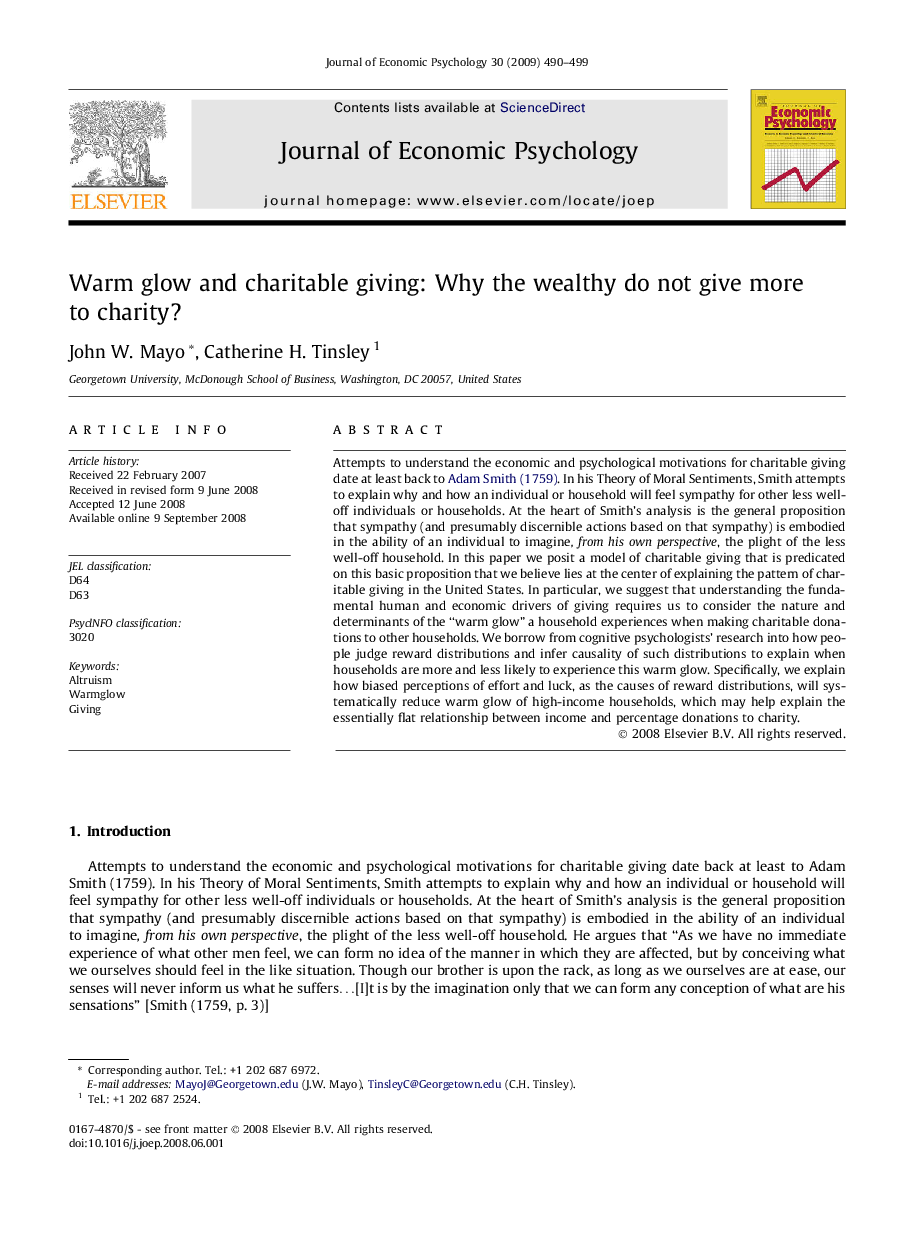| کد مقاله | کد نشریه | سال انتشار | مقاله انگلیسی | نسخه تمام متن |
|---|---|---|---|---|
| 885330 | 912673 | 2009 | 10 صفحه PDF | دانلود رایگان |

Attempts to understand the economic and psychological motivations for charitable giving date at least back to Adam Smith (1759). In his Theory of Moral Sentiments, Smith attempts to explain why and how an individual or household will feel sympathy for other less well-off individuals or households. At the heart of Smith’s analysis is the general proposition that sympathy (and presumably discernible actions based on that sympathy) is embodied in the ability of an individual to imagine, from his own perspective, the plight of the less well-off household. In this paper we posit a model of charitable giving that is predicated on this basic proposition that we believe lies at the center of explaining the pattern of charitable giving in the United States. In particular, we suggest that understanding the fundamental human and economic drivers of giving requires us to consider the nature and determinants of the “warm glow” a household experiences when making charitable donations to other households. We borrow from cognitive psychologists’ research into how people judge reward distributions and infer causality of such distributions to explain when households are more and less likely to experience this warm glow. Specifically, we explain how biased perceptions of effort and luck, as the causes of reward distributions, will systematically reduce warm glow of high-income households, which may help explain the essentially flat relationship between income and percentage donations to charity.
Journal: Journal of Economic Psychology - Volume 30, Issue 3, June 2009, Pages 490–499